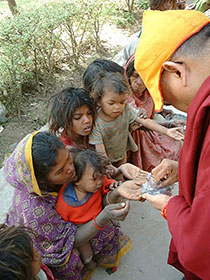- Home
- FPMT Homepage
Foundation for the Preservation of the Mahayana Tradition
The FPMT is an organization devoted to preserving and spreading Mahayana Buddhism worldwide by creating opportunities to listen, reflect, meditate, practice and actualize the unmistaken teachings of the Buddha and based on that experience spreading the Dharma to sentient beings. We provide integrated education through which people’s minds and hearts can be transformed into their highest potential for the benefit of others, inspired by an attitude of universal responsibility and service. We are committed to creating harmonious environments and helping all beings develop their full potential of infinite wisdom and compassion. Our organization is based on the Buddhist tradition of Lama Tsongkhapa of Tibet as taught to us by our founders Lama Thubten Yeshe and Lama Thubten Zopa Rinpoche.
- Willkommen
Die Stiftung zur Erhaltung der Mahayana Tradition (FPMT) ist eine Organisation, die sich weltweit für die Erhaltung und Verbreitung des Mahayana-Buddhismus einsetzt, indem sie Möglichkeiten schafft, den makellosen Lehren des Buddha zuzuhören, über sie zur reflektieren und zu meditieren und auf der Grundlage dieser Erfahrung das Dharma unter den Lebewesen zu verbreiten.
Wir bieten integrierte Schulungswege an, durch denen der Geist und das Herz der Menschen in ihr höchstes Potential verwandelt werden zum Wohl der anderen – inspiriert durch eine Haltung der universellen Verantwortung und dem Wunsch zu dienen. Wir haben uns verpflichtet, harmonische Umgebungen zu schaffen und allen Wesen zu helfen, ihr volles Potenzial unendlicher Weisheit und grenzenlosen Mitgefühls zu verwirklichen.
Unsere Organisation basiert auf der buddhistischen Tradition von Lama Tsongkhapa von Tibet, so wie sie uns von unseren Gründern Lama Thubten Yeshe und Lama Thubten Zopa Rinpoche gelehrt wird.
- Bienvenidos
La Fundación para la preservación de la tradición Mahayana (FPMT) es una organización que se dedica a preservar y difundir el budismo Mahayana en todo el mundo, creando oportunidades para escuchar, reflexionar, meditar, practicar y actualizar las enseñanzas inconfundibles de Buda y en base a esa experiencia difundir el Dharma a los seres.
Proporcionamos una educación integrada a través de la cual las mentes y los corazones de las personas se pueden transformar en su mayor potencial para el beneficio de los demás, inspirados por una actitud de responsabilidad y servicio universales. Estamos comprometidos a crear ambientes armoniosos y ayudar a todos los seres a desarrollar todo su potencial de infinita sabiduría y compasión.
Nuestra organización se basa en la tradición budista de Lama Tsongkhapa del Tíbet como nos lo enseñaron nuestros fundadores Lama Thubten Yeshe y Lama Zopa Rinpoche.
A continuación puede ver una lista de los centros y sus páginas web en su lengua preferida.
- Bienvenue
L’organisation de la FPMT a pour vocation la préservation et la diffusion du bouddhisme du mahayana dans le monde entier. Elle offre l’opportunité d’écouter, de réfléchir, de méditer, de pratiquer et de réaliser les enseignements excellents du Bouddha, pour ensuite transmettre le Dharma à tous les êtres. Nous proposons une formation intégrée grâce à laquelle le cœur et l’esprit de chacun peuvent accomplir leur potentiel le plus élevé pour le bien d’autrui, inspirés par le sens du service et une responsabilité universelle. Nous nous engageons à créer un environnement harmonieux et à aider tous les êtres à épanouir leur potentiel illimité de compassion et de sagesse. Notre organisation s’appuie sur la tradition guéloukpa de Lama Tsongkhapa du Tibet, telle qu’elle a été enseignée par nos fondateurs Lama Thoubtèn Yéshé et Lama Zopa Rinpoché.
Visitez le site de notre Editions Mahayana pour les traductions, conseils et nouvelles du Bureau international en français.
Voici une liste de centres et de leurs sites dans votre langue préférée
- Benvenuto
L’FPMT è un organizzazione il cui scopo è preservare e diffondere il Buddhismo Mahayana nel mondo, creando occasioni di ascolto, riflessione, meditazione e pratica dei perfetti insegnamenti del Buddha, al fine di attualizzare e diffondere il Dharma fra tutti gli esseri senzienti.
Offriamo un’educazione integrata, che può trasformare la mente e i cuori delle persone nel loro massimo potenziale, per il beneficio di tutti gli esseri, ispirati da un’attitudine di responsabilità universale e di servizio.
Il nostro obiettivo è quello di creare contesti armoniosi e aiutare tutti gli esseri a sviluppare in modo completo le proprie potenzialità di infinita saggezza e compassione.
La nostra organizzazione si basa sulla tradizione buddhista di Lama Tsongkhapa del Tibet, così come ci è stata insegnata dai nostri fondatori Lama Thubten Yeshe e Lama Zopa Rinpoche.
Di seguito potete trovare un elenco dei centri e dei loro siti nella lingua da voi prescelta.
- 欢迎 / 歡迎
简体中文
“护持大乘法脉基金会”( 英文简称:FPMT。全名:Foundation for the Preservation of the Mahayana Tradition) 是一个致力于护持和弘扬大乘佛法的国际佛教组织。我们提供听闻,思维,禅修,修行和实证佛陀无误教法的机会,以便让一切众生都能够享受佛法的指引和滋润。
我们全力创造和谐融洽的环境, 为人们提供解行并重的完整佛法教育,以便启发内在的环宇悲心及责任心,并开发内心所蕴藏的巨大潜能 — 无限的智慧与悲心 — 以便利益和服务一切有情。
FPMT的创办人是图腾耶喜喇嘛和喇嘛梭巴仁波切。我们所修习的是由两位上师所教导的,西藏喀巴大师的佛法传承。
繁體中文
護持大乘法脈基金會”( 英文簡稱:FPMT。全名:Found
ation for the Preservation of the Mahayana Tradition ) 是一個致力於護持和弘揚大乘佛法的國際佛教組織。我們提供聽聞, 思維,禪修,修行和實證佛陀無誤教法的機會,以便讓一切眾生都能 夠享受佛法的指引和滋潤。 我們全力創造和諧融洽的環境,
為人們提供解行並重的完整佛法教育,以便啟發內在的環宇悲心及責 任心,並開發內心所蘊藏的巨大潛能 — 無限的智慧與悲心 – – 以便利益和服務一切有情。 FPMT的創辦人是圖騰耶喜喇嘛和喇嘛梭巴仁波切。
我們所修習的是由兩位上師所教導的,西藏喀巴大師的佛法傳承。 察看道场信息:
- FPMT Homepage
- News/Media
-
- Study & Practice
-
-
- About FPMT Education Services
- Latest News
- Programs
- New to Buddhism?
- Buddhist Mind Science: Activating Your Potential
- Heart Advice for Death and Dying
- Discovering Buddhism
- Living in the Path
- Exploring Buddhism
- FPMT Basic Program
- FPMT Masters Program
- FPMT In-Depth Meditation Training
- Maitripa College
- Lotsawa Rinchen Zangpo Translator Program
- Universal Education for Compassion & Wisdom
- Online Learning Center
-
- Prayers & Practice Materials
- Overview of Prayers & Practices
- Full Catalogue of Prayers & Practice Materials
- Explore Popular Topics
- Benefiting Animals
- Chenrezig Resources
- Death & Dying Resources
- Lama Chopa (Guru Puja)
- Lama Zopa Rinpoche: Compendium of Precious Instructions
- Lama Zopa Rinpoche: Life Practice Advice
- Lama Zopa Rinpoche Practice Series
- Lamrim Resources
- Mantras
- Prayer Book Updates
- Purification Practices
- Sutras
- Thought Transformation (Lojong)
- Audio Materials
- Dharma Dates - Tibetan Calendar
- Translation Services
- Publishing Services
- Ways to Offer Support
- Prayers & Practice Materials
-
- Teachings and Advice
- Find Teachings and Advice
- Lama Zopa Rinpoche Advice Page
- Lama Zopa Rinpoche: Compendium of Precious Instructions
- Lama Zopa Rinpoche Video Teachings
- ༧སྐྱབས་རྗེ་བཟོད་པ་རིན་པོ་ཆེ་མཆོག་ནས་སྩལ་བའི་བཀའ་སློབ་བརྙན་འཕྲིན།
- Podcasts
- Lama Yeshe Wisdom Archive
- Buddhism FAQ
- Dharma for Young People
- Resources on Holy Objects
- Teachings and Advice
-
-
*If a menu item has a submenu clicking once will expand the menu clicking twice will open the page.
-
-
- Centers
-
- Teachers
-
- Projects
-
-
-
-
*If a menu item has a submenu clicking once will expand the menu clicking twice will open the page.
-
-
- FPMT
-
-
-
-
-
Buddhism is not at all a tactful religion, always trying to avoid giving offense. Buddhism addresses precisely what you are and what your mind is doing in the here and now. That’s what makes it so interesting.
Lama Thubten Yeshe
-
-
-
- Shop
-
-
-
The Foundation Store is FPMT’s online shop and features a vast selection of Buddhist study and practice materials written or recommended by our lineage gurus. These items include homestudy programs, prayers and practices in PDF or eBook format, materials for children, and other resources to support practitioners.
Items displayed in the shop are made available for Dharma practice and educational purposes, and never for the purpose of profiting from their sale. Please read FPMT Foundation Store Policy Regarding Dharma Items for more information.
-
-
Lama Zopa Rinpoche News and Advice
11
We Cannot Trust the Appearance of Things
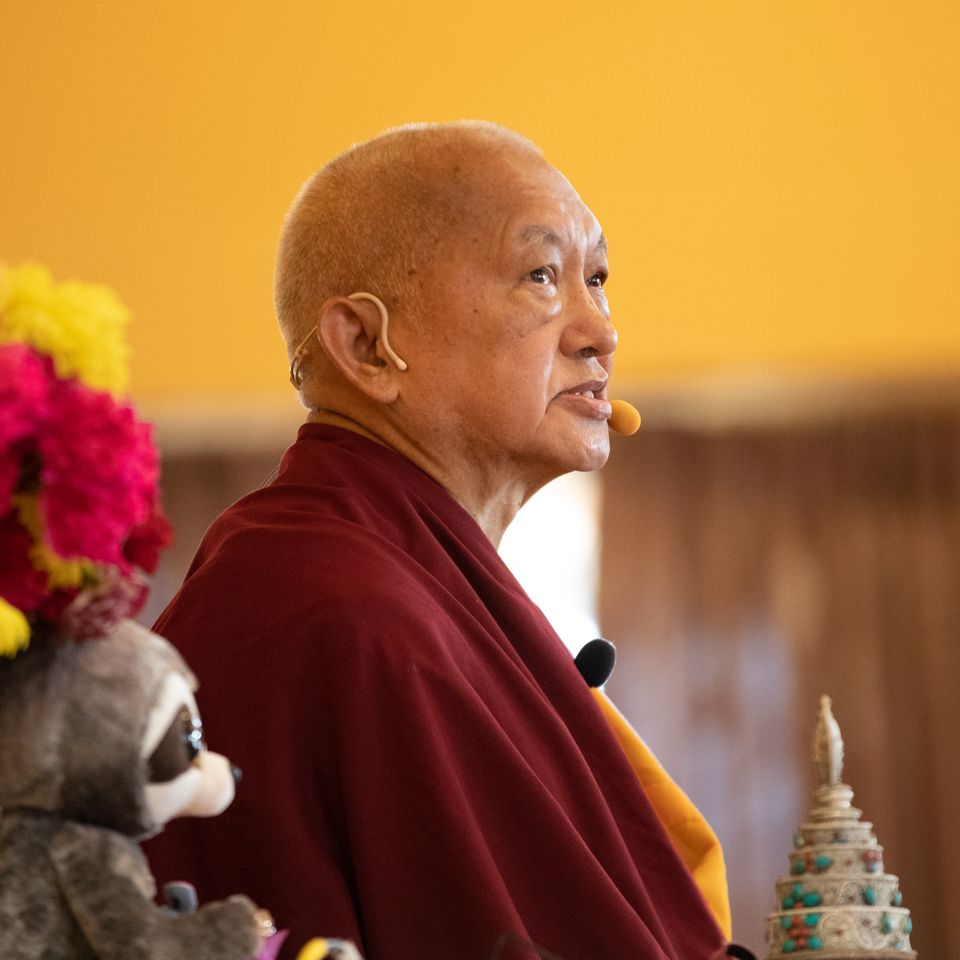
Lama Zopa Rinpoche, Kopan Monastery, Nepal, December 2019. Photo by Neal Patrick.
The Six Perfections: The Practice of the Bodhisattvas is a new book from Lama Zopa Rinpoche. In it, Rinpoche walks us through the six perfections, a key Mahayana Buddhist training. Here’s an excerpt from Rinpoche’s teaching on the perfection of wisdom:
Everything, even subtle things, should appear merely labeled by the mind, but that doesn’t happen for us sentient beings. Whatever we experience is colored by this wrong view of inherent existence. From the object to be refuted according to the lower schools all the way to that asserted by Svatantrika and finally by Prasangika, we need to recognize these different degrees of subtlety of wrong view.
Things do exist, but they exist because they are empty. That is why the I exists; why phenomena exist; why birth, aging, and death exist; why suffering and the cessation of suffering exist. All these exist in mere name. For ordinary people like us, however, everything that is false in life appears true. Whether something exists or is a fantasy, we believe it to be 100 percent true. On the other hand, ultimate reality, which does exist, appears to us as nonexistent.
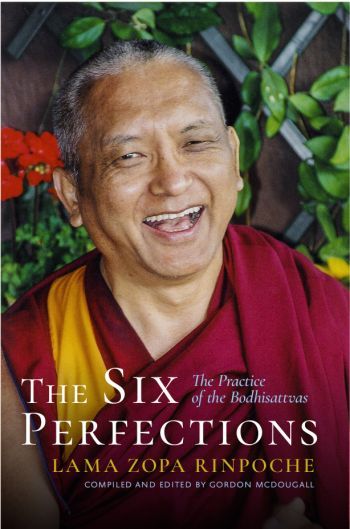
Cover of Lama Zopa Rinpoche’s new book
A verse in the Vajra Cutter Sutra says:
A star, a defective view, the butter lamp flame,
an illusion, a dew drop, or a water bubble,
a dream, lightning, a cloud—
see all causative phenomena like this.
Each of these similes is a pointed reminder that we cannot trust the appearance of things.
Learn more about The Six Perfections: The Practice of the Bodhisattvas, including order information, on Wisdom Publication’s website:
https://wisdomexperience.org/product/the-six-perfections/
Lama Zopa Rinpoche is the spiritual director of the Foundation for the Preservation of Mahayana Tradition (FPMT), a Tibetan Buddhist organization dedicated to the transmission of the Mahayana Buddhist tradition and values worldwide through teaching, meditation and community service.
9
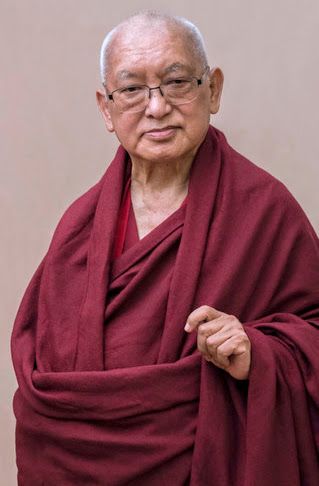
Lama Zopa Rinpoche, Russia, October 2019. Photo by Ven. Lobsang Sherab.
Due to the risk from the spread of the novel coronavirus, the Bodhicaryavatara and Rinjung Gyatsa Retreat at the Great Stupa of Universal Compassion, Bendigo, Australia, has been postponed. Lama Zopa Rinpoche’s other teaching events in Australia in March and April 2020 have also been postponed.
The postponement of the retreat is the result of observations by Lama Zopa Rinpoche and Khadro-la (Rangjung Neljorma Khadro Namsel Drönme) on the implications of the coronavirus.
In these observations it was repeatedly noted that:
- The coronavirus is moving fast.
- The coronavirus is easily transferred.
- There is at present no cure for the virus.
- There is a danger for the group to gather at this time at the retreat.
We regret that this postponement will cause financial and logistical difficulties for many people. The organizers of the retreat at the Great Stupa have already reached out to those who have booked for the retreat.
Lama Zopa Rinpoche has indicated that the retreat, and other teaching events in Australia, will be rescheduled as soon as the risk from coronavirus is under control, and as soon as a suitable alternative time can be found in Rinpoche’s teaching schedule.
We know that many other centers are affected by the spread of coronavirus and encourage you to continue to take all sensible precautions to help ensure the safety of those using FPMT centers, projects, services, and study groups.
Advice from Rinpoche on Coronavirus
Lama Zopa Rinpoche has offered the following advice to protect from harm by the novel coronavirus:
- Lama Zopa Rinpoche Offers Advice to Protect from the Coronavirus, posted January 25, 2020
- Additional Advice from Lama Zopa Rinpoche to Protect from the Coronavirus, posted January 28, 2020
Lama Zopa Rinpoche is the spiritual director of the Foundation for the Preservation of Mahayana Tradition (FPMT), a Tibetan Buddhist organization dedicated to the transmission of the Mahayana Buddhist tradition and values worldwide through teaching, meditation and community service.
- Tagged: australia retreat 2020, coronavirus, fpmt australia
2
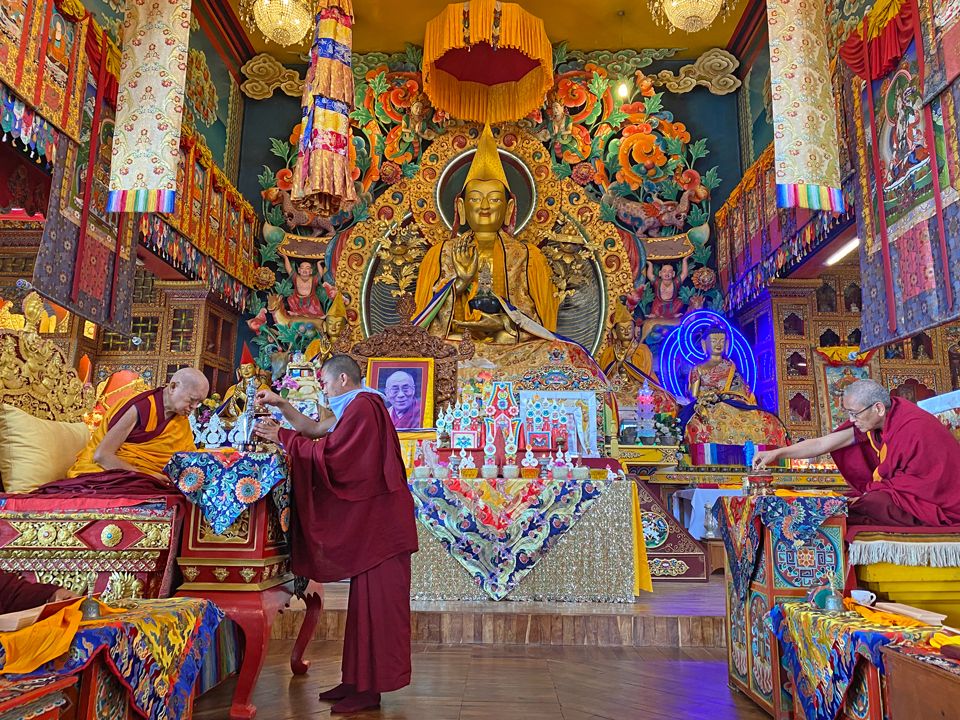
Lama Zopa Rinpoche and Kopan abbot Khen Rinpoche Geshe Chonyi doing Most Secret Hayagriva tsog kong at Kopan Monastery, Nepal, March 2020. Photo by Ven. Roger Kunsang.
On Monday, March 2, Lama Zopa Rinpoche, joined by the monks and nuns of Kopan Monastery, did a Most Secret Hayagriva tsog kong puja to remove the novel coronavirus (COVID-19) as well as to remove all obstacles for the year and to bring success to the entire FPMT organization and its projects, and to all sentient beings.
Hayagriva is the wrathful manifestation of Chenrezig, the Buddha of Compassion. The puja done by Rinpoche and the Kopan Sangha is regarded as very powerful and can be performed to remove large obstacles (such as heavy illness), to repair damage to commitments, and to increase merits.
Rinpoche has given advice and additional advice on practices to be done to protect from the coronavirus.
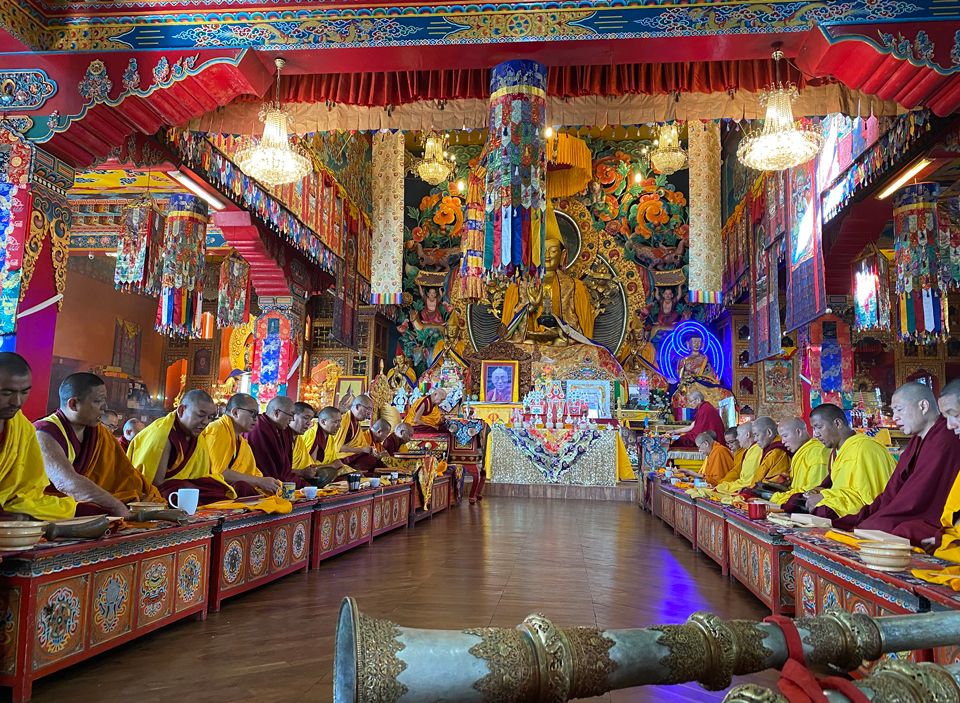
Lama Zopa Rinpoche and the Sangha of Kopan Monastery doing Most Secret Hayagriva tsog kong, Nepal, March 2020. Photo by Ven. Roger Kunsang.
Find Lama Zopa Rinpoche’s advice on the coronavirus (COVID-19) and other illnesses on Rinpoche’s advice page under the category “sickness”:
https://fpmt.org/teachers/zopa/advice/
Lama Zopa Rinpoche is the spiritual director of the Foundation for the Preservation of Mahayana Tradition (FPMT), a Tibetan Buddhist organization dedicated to the transmission of the Mahayana Buddhist tradition and values worldwide through teaching, meditation and community service.
- Tagged: coronavirus, hayagriva puja, lama zopa rinpoche
28
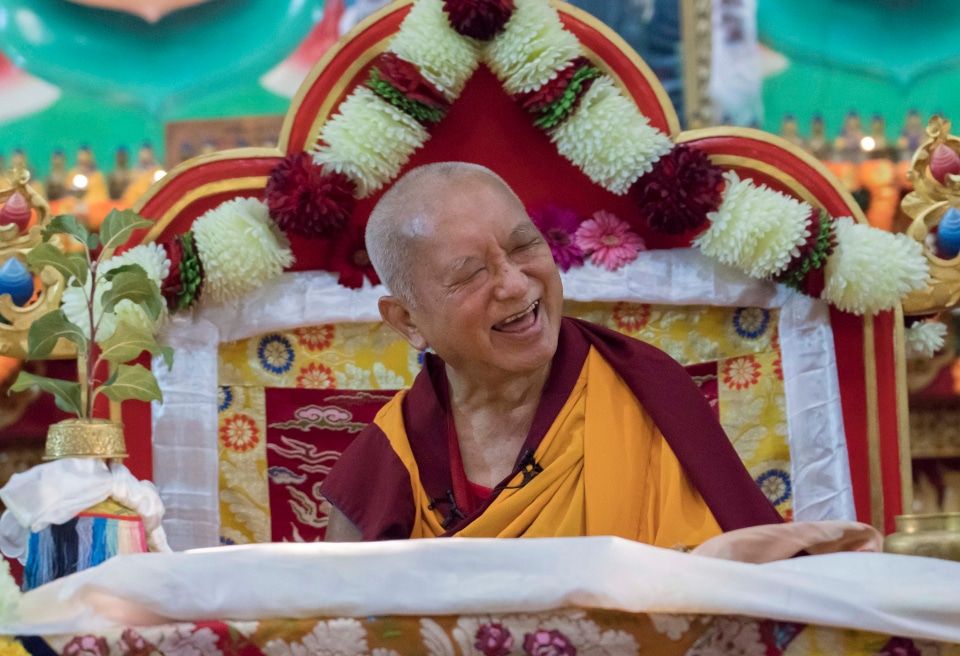
Lama Zopa Rinpoche teaching in Elista, Kalmykia, Russia, 2019. Photo by Ven. Lobsang Sherab.
The Six Perfections: The Practice of the Bodhisattvas is a new book from Lama Zopa Rinpoche. In it, Rinpoche offers instruction on the six perfections, a key Mahayana Buddhist teaching. Here’s an excerpt from the book’s “Introduction”:
The Sanskrit for perfection is paramita, which literally means “gone beyond.” The perfections are the practices of bodhisattvas, holy beings who have completely renounced the self; they have transcended selfish concerns and cherish only others.
Each perfection is perfect, flawless. Each arises from bodhichitta and is supported by the other perfections, including the wisdom of emptiness. Because of that, a bodhisattva generates infinite merit every moment, whether outwardly engaged in working for others or not. A bodhisattva’s bodhichitta never stops. Even sleeping, there is no self-cherishing; even in a coma, infinite merit is still created.

Cover of Lama Zopa Rinpoche’s new book
The six perfections are as follows:
- Charity (dana)
- Morality (shila)
- Patience (kshanti)
- Perseverance (virya)
- Concentration (dhyana)
- Wisdom (prajna)
The first perfection is the perfection of charity. Its nature is the virtuous thought of giving. With that thought we perform the three types of charity: giving material objects, giving fearlessness, and giving the Dharma. These encompass all our actions of body, speech, and mind, such as giving material objects, protecting from fear, and giving the Dharma.
The second perfection is the perfection of morality, of which there are three types: refraining from nonvirtue, gathering virtuous deeds, and working for others. The first, refraining from nonvirtue, is abstaining from actions that harm sentient beings. The second, gathering virtuous deeds, means completely giving up the thought of seeking happiness for the self, including seeking self-liberation. The third, working for others, means just that—protecting sentient beings from harm as well as helping them in any way we can.
Then there is the perfection of patience. The nature of patience is keeping the mind in virtue whenever we encounter disturbance and harm. (We could endure these with a nonvirtuous mind as well, which is why the distinction is made.) There are three types of patience: not retaliating when harmed, accepting suffering, and having certainty about the Dharma. Accepting suffering means our mind remains calm and undisturbed whenever we receive harm from either sentient beings or nonliving things. Having certainty about the Dharma means always abiding in the wish to continuously practice the Dharma no matter what the circumstance.
The perfection of perseverance means being happy to practice virtue—specifically, being happy to practice each of the perfections—and doing work for all sentient beings. This includes virtuous actions of the body and speech, such as doing prostrations and reciting mantras.
With the fifth perfection, concentration, through both analytical meditation and single-pointed concentration we constantly reflect on the meaning of the teachings and put them into practice. For instance, when we do a shamatha, or calm-abiding meditation, using Guru Shakyamuni Buddha, the Buddha is the object of meditation; if we are meditating on bodhichitta, the mind of enlightenment, when we place our mind single-pointedly on bodhichitta, that is the object of meditation.
The last perfection is the perfection of wisdom, of which there are two types. One type realizes the conventional (or all-obscuring) truth, which includes the nature of impermanence or the law of cause and effect. The other type realizes the ultimate truth, the emptiness of all phenomena. Generally, the perfection of wisdom refers to realizing emptiness.
Excerpted from Lama Zopa Rinpoche’s new book The Six Perfections: The Practice of the Bodhisattvas, edited by Gordon McDougall and published by Wisdom Publications.
Learn more about the book, including information on ordering, on Wisdom Publication’s website:
https://wisdomexperience.org/product/the-six-perfections/
Lama Zopa Rinpoche is the spiritual director of the Foundation for the Preservation of Mahayana Tradition (FPMT), a Tibetan Buddhist organization dedicated to the transmission of the Mahayana Buddhist tradition and values worldwide through teaching, meditation and community service.
24

Cover of Big Love: The Live and Teachings of Lama Yeshe
The Tibetan New Year, Losar, falls on February 24 this year. For FPMT students, this day has additional significance as it commemorates the anniversary of the parinirvana of Lama Yeshe, who co-founded FPMT with Lama Zopa Rinpoche.
As part of Rinpoche’s advice on how to celebrate Losar and the Fifteen Days of Miracles, Rinpoche recommends that centers host events to introduce new students to Lama Yeshe. These events might include students who knew Lama Yeshe sharing their favorite stories, watching videos of Lama teaching, or reading stories about Lama.
In that spirit, we’re sharing this update from Lama Yeshe Wisdom Archive:
After nearly thirty years in the making, Big Love: The Life and Teachings of Lama Yeshe, will soon be here! Big Love, the official, authorized biography of Lama Yeshe, contains personal stories of the lamas and the students who learned, lived, and traveled with them, as well as more than 1,500 photos dating back to the 1960s. You can pre-order Big Love now!
The book tells the story of Lama Yeshe, how he met Lama Zopa Rinpoche, and how they created the Foundation for the Preservation of the Mahayana Tradition (FPMT), one of the world’s largest Tibetan Buddhist organizations. It begins in Tibet, where Lama was born, and moves to the refugee camp in Buxa Duar, West Bengal, India, where Rinpoche became his student. The story continues to other parts of India and Nepal, and finally to the entire world.
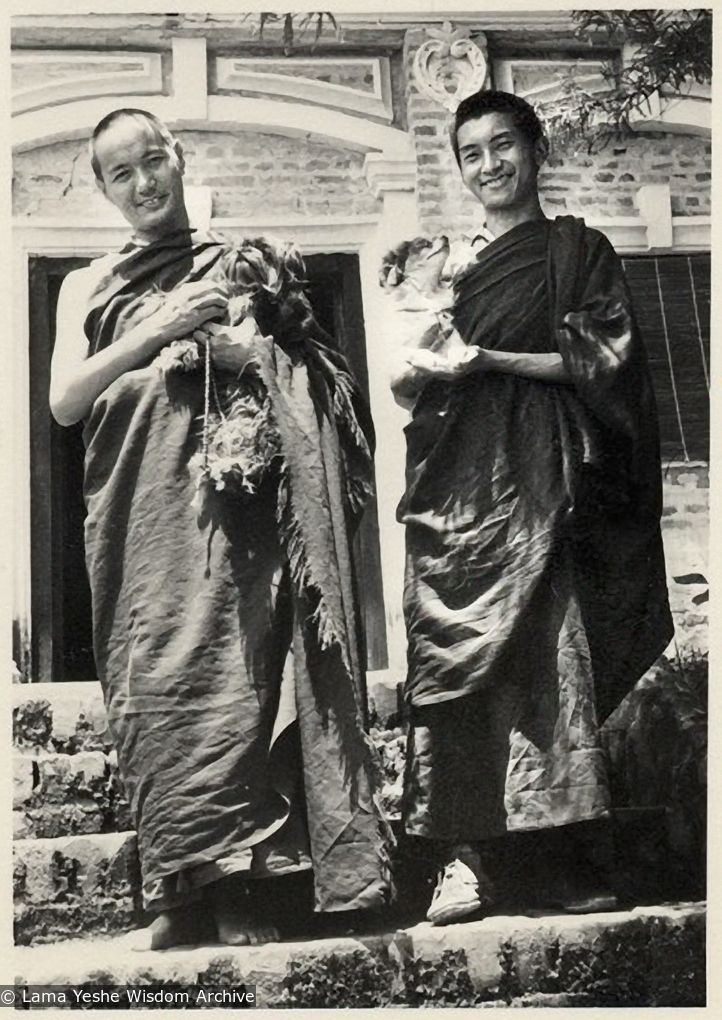
Lama Yeshe and Lama Zopa Rinpoche on the steps of Kopan Monastery, Nepal, 1970. Photo courtesy Lama Yeshe Wisdom Archive.
The author, Adele Hulse, one of Lama Yeshe’s earliest students, highlights his special connection with early Dharma seekers and skillfully weaves their intimate stories with details of where Lama went, the teachings he gave, and the centers he inspired. It brings to life how special he was and how he connected with people from all over the world and all walks of life.
If you knew Lama, as Lama Yeshe was fondly called by his students, you will be reminded of his wisdom and charisma; if you did not, this is the perfect introduction.
Watch a promotional video for Big Love here:
https://youtu.be/Z4hH9_066NY
The official launch of this magnificent work will be on March 24, during the retreat with Lama Zopa Rinpoche at the Great Stupa of Universal Compassion, Australia. Osel Hita is planning to attend, together with the author, Adele Hulse, and the publisher, Nick Ribush.
Lama Yeshe Wisdom Archive expects copies of Big Love to be available by the end of March 2020. Pre-order is open now and will remain open through February 27. For more information or to place an order go to: www.LamaYeshe.com/BigLove.
After pre-order closes, the Archive will be accepting orders again once the books arrive from the printer. FPMT center bookstores are eligible for a 50% discount, and Lama Yeshe Wisdom Archive encourages you to pre-order now, as you may be able to take advantage of lower shipping rates. Email us at info@LamaYeshe.com.
Read “A Monumental Accomplishment: The Making of Big Love” and “1941–58: Living a Monastic Life,” an excerpt from Big Love, both published in Mandala July-December 2019.
28
Lama Zopa Rinpoche recently offered advice on practices to do to protect from the coronavirus. As part of the advice, Rinpoche recommended a specific puja be done. The puja has now been arranged at Sera Je Monastery in India. It has also been arranged to be done in Tibet.
Rinpoche now offers this additional advice to protect from the coronavirus:
Rinpoche says that in addition to his earlier advice people should also recite “The Prayer Liberating Sakya from Disease” ( PDF, Audio). The prayer comes from the great yogi Thangtong Gyalpo (1385–1464) and is for healing from disease.
While doing this prayer, students should look at an image of Thangtong Gyalpo. (The image of Thangtong Gyalpo below is from a thangka in Lama Zopa Rinpoche’s house.)
Rinpoche added, “the previous mantras are to protect yourself and others, but this prayer from Thangtong Gyalpo is to heal the disease in China and for it not to spread out to other countries. So it is to protect the country. And anyone in the world can recite this prayer.”
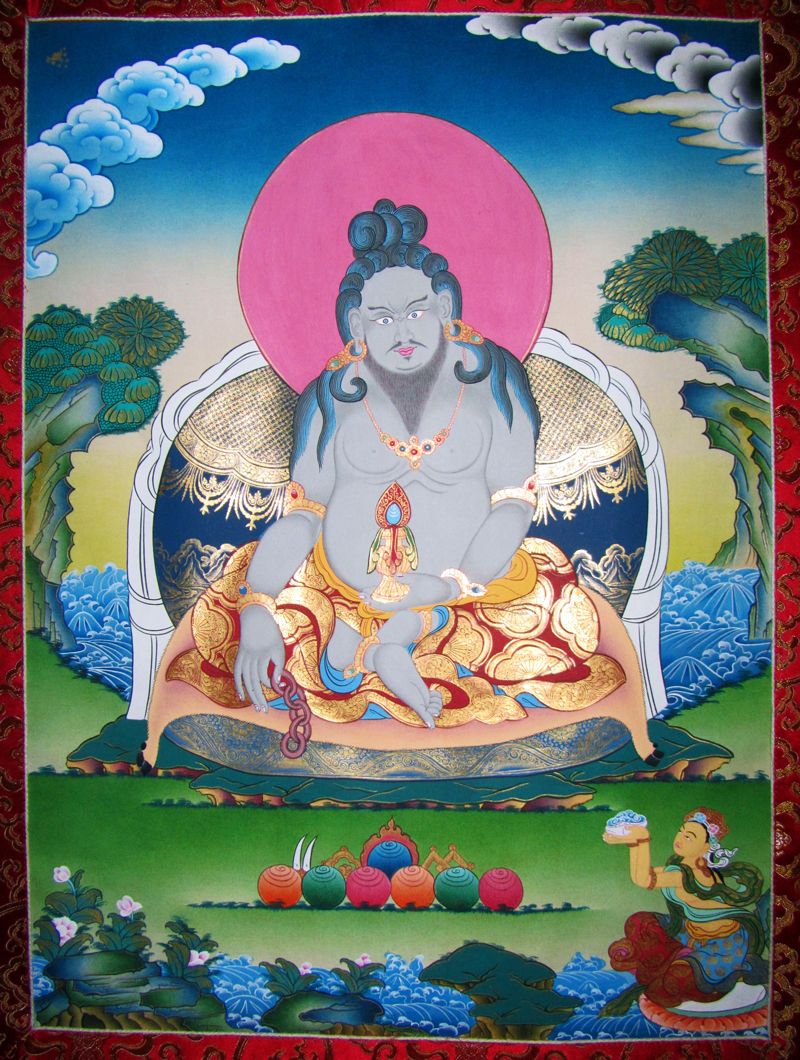
Thangtong Gyalpo
Lama Zopa Rinpoche’s earlier advice to protect from the coronavirus is here:
https://fpmt.org/lama-zopa-rinpoche-news-and-advice/advice-from-lama-zopa-rinpoche/lama-zopa-rinpoche-offers-advice-to-protect-from-the-coronavirus/
Lama Zopa Rinpoche is the spiritual director of the Foundation for the Preservation of Mahayana Tradition (FPMT), a Tibetan Buddhist organization dedicated to the transmission of the Mahayana Buddhist tradition and values worldwide through teaching, meditation and community service.
25
Lama Zopa Rinpoche was asked what can be done for the outbreak of the coronavirus. UPDATE: Rinpoche has offered additional advice.
Rinpoche advised the arrangement of a wrathful fire puja offered by Jhado Rinpoche in South India at Sera Je Monastery. [This was done. Also a Most Secret Hayagriva tsog kong was offered at Kopan Monastery and at Sera Je Monastery, and a number of other pujas were arranged in India and Nepal.]
Individual students can do the following mantra recitation practice:
As a motivation before reciting the two mantras, Rinpoche said it’s best if people can do The Method to Transform a Suffering Life into Happiness (Including Enlightenment) with Additional Practices, which is the daily morning practice Rinpoche has put together. That is best. But if that is too much, then do the lamrim motivation, which is just The Method without additional practices. [In other words, do the recitation on pages 7–14 of the booklet and stop at the Additional Practices, which begin with the “Blessing the Speech” section.] So at least do that part as a motivation before reciting the mantras.
- Recite Vajra Armor mantra, which is a famous mantra for healing. You can do the entire Vajra Armor Protection Wheel if you want. Otherwise, just do the mantra:
HŪṂ VAJRA PHAṬ* / OṂ PADMAŚHAVARI PHAṬ / NÄN PAR SHIG / NĀGANAN / TADYATHĀ / SARVAVIRITA / HANA HANA / VAJRENA RAKṢHA RAKṢHA SVĀHĀ
*Lama Zopa Rinpoche often gives the oral transmission of the mantra with the additional syllables “HŪṂ VAJRA PHAṬ,” as was taught by Trulshik Rinpoche. These syllables are recited with each recitation of the mantra. There are other lineages of the mantra that do not contain these syllables.
After you finish reciting the mantra, hold your hand in front of your mouth and blow the air up, so it goes into your nostrils.
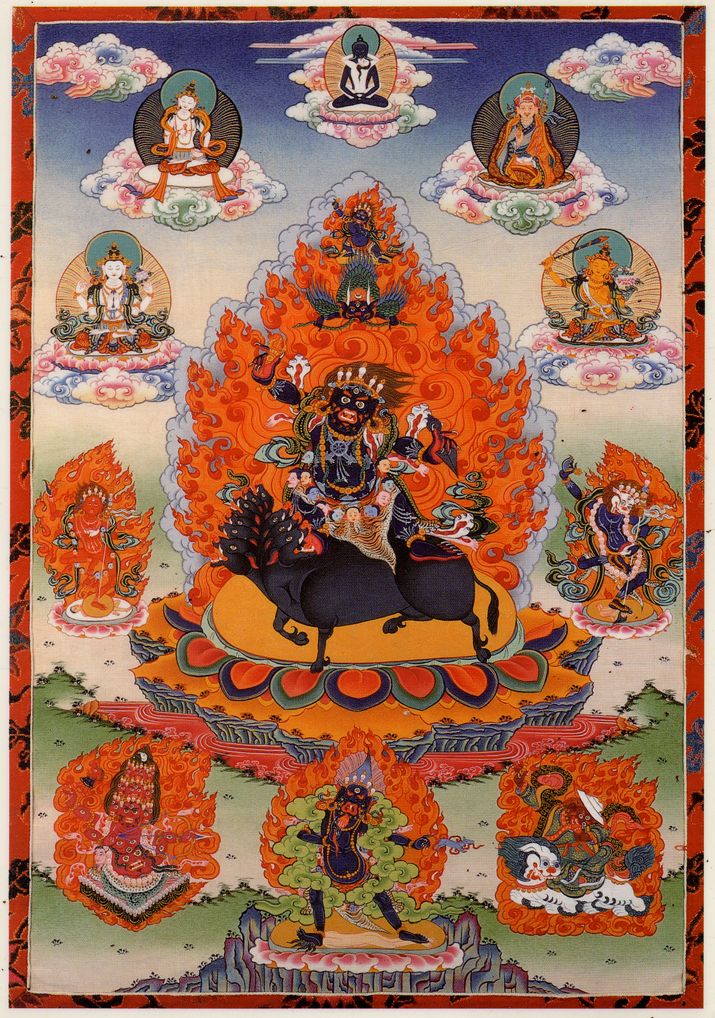
Vajra Armor
- Then also recite Black Manjushri mantra. The Meditation-Recitation of Black Manjushri is also good to do if you want. Otherwise, just do the mantra:
OṂ TRA SÖ / CHHU SÖ / DUR TA SÖ / DUR MI SÖ / NYING GO LA CHHÖ / KHA LA JAḤ KAṂ ŚHAṂ TRAṂ / BÄ PHAṬ SVĀHĀ
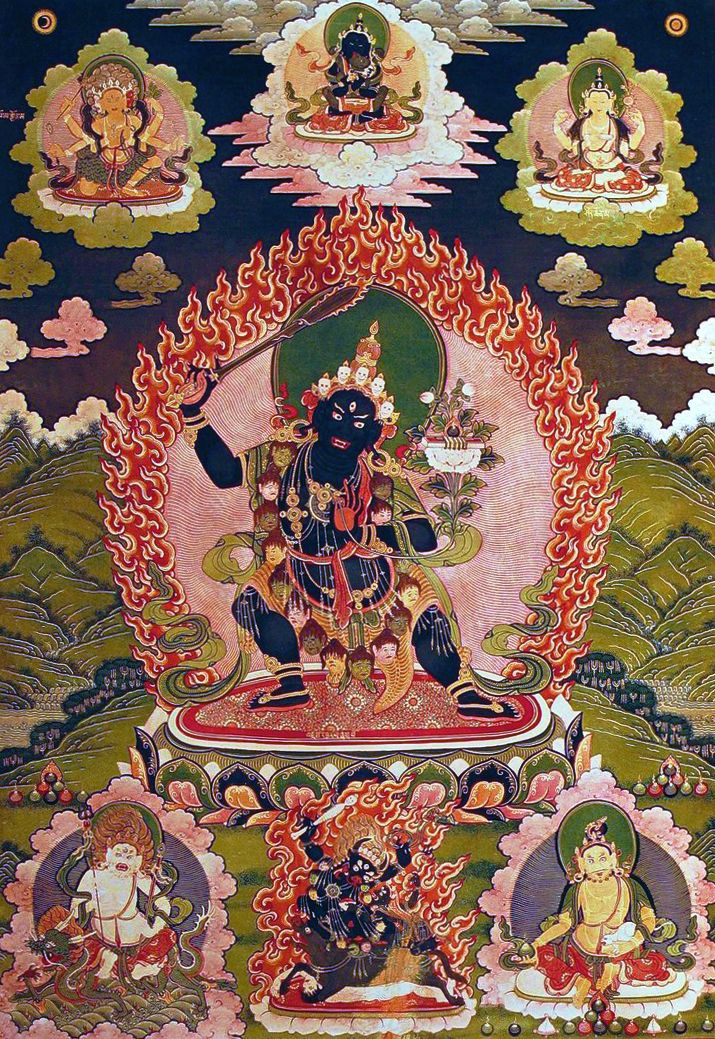
Black Manjushri
Then at the end, do dedication prayers:
JANG CHHUB SEM CHHOG RIN PO CHHE
May the precious supreme bodhichitta
MA KYE PA NAM KYE GYUR CHIG
Not yet born arise.
KYE PA NYAM PA ME PA YI
May that arisen not decline,
GONG NÄ GONG DU PHEL WAR SHOG
But increase more and more.
GE WA DI YI NYUR DU DAG
Due to this virtue, may I quickly
LA MA SANG GYÄ DRUB GYUR NÄ
Become a Guru-Buddha,
DRO WA CHIG KYANG MA LÜ PA
And lead all transmigratory beings,
DE YI SA LA GÖ PAR SHOG
Without exception, to that state.
Due to all the merits of the three times collected by me, the numberless buddhas, and the numberless sentient beings, may all wars, sickness, famine, torture, poverty, and economic problems in the world, and all dangers of earth, water, fire, and wind, be pacified immediately, and may perfect peace and happiness prevail in everyone’s hearts and lives. May the Buddhadharma last for a long time, and may the sentient beings in this world meet the Buddhadharma and achieve enlightenment as quickly as possible.
Due to all the past, present, and future merits collected by me and all the merits of the three times collected by the numberless buddhas and numberless sentient beings, which are completely empty of existing from their own side, may I, who am completely empty of existing from my own side, achieve the state of full enlightenment, which is completely empty of existing from its own side, and lead all sentient beings, who are completely empty of existing from their own side, to that state, which is completely empty of existing from its own side, by myself alone, who is completely empty of existing from my own side.
Scribe: Ven. Holly Ansett, January 23, 2020.
Links to the practices in this advice can be found here:
https://fpmt.org/education/prayers-and-practice-materials/
Additional advice from Lama Zopa Rinpoche for protection from coronavirus:
https://fpmt.org/lama-zopa-rinpoche-news-and-advice/advice-from-lama-zopa-rinpoche/additional-advice-from-lama-zopa-rinpoche-to-protect-from-the-coronavirus/
Lama Zopa Rinpoche is the spiritual director of the Foundation for the Preservation of Mahayana Tradition (FPMT), a Tibetan Buddhist organization dedicated to the transmission of the Mahayana Buddhist tradition and values worldwide through teaching, meditation and community service.
13
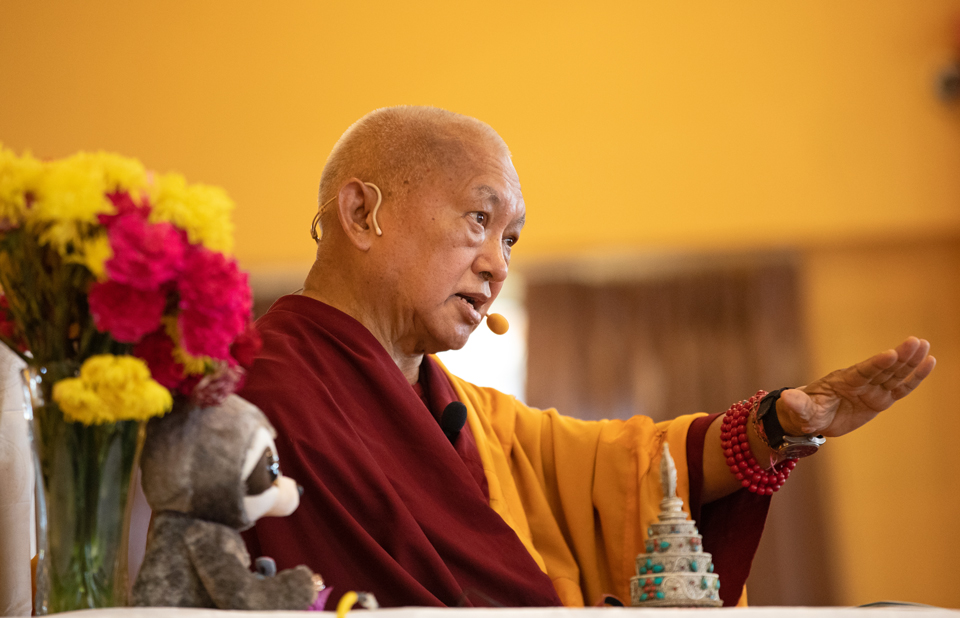
Lama Zopa Rinpoche teaching at the 52nd Kopan Course, Kopan Monastery, Nepal, December 2019. Photo by Neal Patrick.
Lama Zopa Rinpoche gave this advice for a practice to do for world peace in June 2004.
My dear Dharma brothers and sisters,
It looks like there could be a lot of violence happening in Iraq.
It comes out very beneficial if people read the Golden Light Sutra at least 1,000 times and dedicate it for peace in Iraq and the rest of world. This will at least reduce the killing and suffering.
The holy Sutra of Golden Light is the king of the sutras (Ser.ö dam.päi do wang.gyi gyälpo). It is extremely powerful and fulfills the wishes, as well all the peace and happiness, of all sentient beings, up to enlightenment. It is also powerful for world peace, your own protection, and the protection of your country and the world. Also, it has great healing power for people in the country, even if only one person reads it.
I am offering my suggestion for people who desire peace for themselves and for others. This is the spiritual, or Dharma, way to bring peace that doesn’t require you to harm others, doesn’t require you to criticize others or even to demonstrate against others, yet can accomplish peace. So I hope some people, Buddhists and even non-Buddhists who desire world peace, will read this text.
This also protects individuals and the country from what are labeled natural disasters—of the wind element, fire element, earth element, and water element—such as earthquakes, floods, cyclones, fires, tornadoes, etc. They are not natural, because they come from causes and conditions that make dangers happen. They come from past inner negative thoughts and actions of people, and external conditions. Their creation is not natural, it happens from our own side.
So here, I would like to make this request with my two palms together to please recite the Sutra of Golden Light for world peace as much as you can.
Thank you very much.
With much love and prayers,
Lama Zopa
Find resources on the Golden Light Sutra and links to the sutra in fifteen languages:
https://fpmt.org/education/prayers-and-practice-materials/sutras/golden-light-sutra/
Lama Zopa Rinpoche is the spiritual director of the Foundation for the Preservation of Mahayana Tradition (FPMT), a Tibetan Buddhist organization dedicated to the transmission of the Mahayana Buddhist tradition and values worldwide through teaching, meditation and community service.
- Tagged: golden light sutra, peace, world peace
10
Prayer for Peace
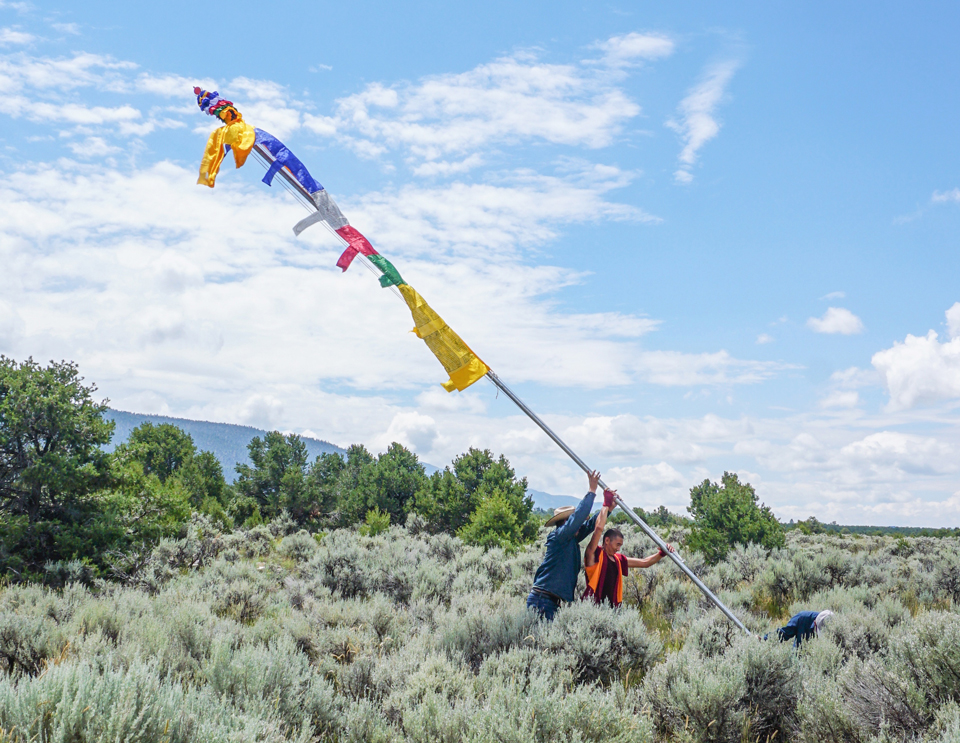
Putting up prayer flags, New Mexico, US, 2017. Photo by Ven. Lobsang Sherab.
“When there was unceasing war in Kham (Me Nyak), Tibet, and nobody was able to create harmony, the Great Lord Yogi (Thang Thong Gyalpo) came to Kham, generated bodhichitta, and just by merely saying these true words and sprinkling flowers, all the vicious minds (jealousy and anger) were completely pacified and the war that had been continuous, ceased. There were prosperous harvests and so forth. The country became auspicious and peaceful. This is blessed vajra speech,” Lama Zopa Rinpoche said as preface to his translation of a prayer by the great tantric yogi Thang Thong Gyalpo.
“… Through whatever merits have come from making this translation available, may wherever this text is (whichever country) and also by reading this prayer, cause all the people’s hearts be filled with loving kindness, bodhichitta, and the thought to only benefit and not harm. May the sun of peace and happiness arise and may any wars that are happening stop immediately. May there be harmony, peace, and may there never be war or violence again.” Rinpoche made this translation of Thang Thong Gyalpo’s “Prayer for Peace” after the 9/11 terrorist attacks of 2001 in the United States.
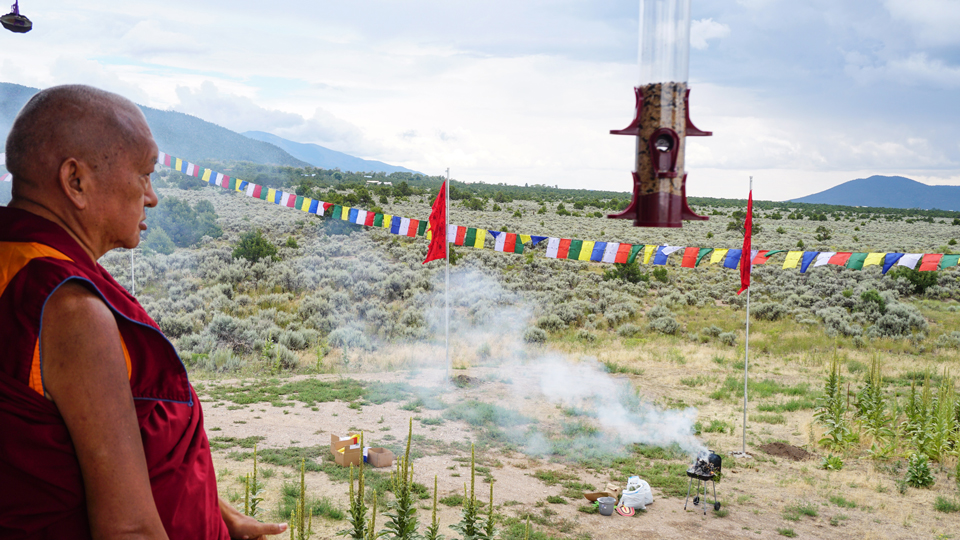
Lama Zopa Rinpoche observes while incense offerings are made while new prayer flags are hung, Taos, New Mexico, August 2017. Photo by Ven. Lobsang Sherab.
HERE ARE THE WORDS OF TRUTH PACIFYING THE DANGERS OF WEAPONS
OM MANI PADME HUM
Great Loving Victorious One (Maitreya Buddha), Transcendental Sublime Compassionate Eye Looking One,
Wrathful Victorious Hayagriva, Fully Accomplished Totally Pure (Jetsun) Tara and so forth,
Merely hearing your holy names eliminates all dangers,
Objects of refuge in the nature of compassion, please pay attention!When the sentient beings of the time of quarreling and five degenerations
By the explosion of the great ocean of evil karma and jealousy
Are tormented by the intensive suffering of fighting and quarreling
Please dry this up by the power of transcendental wisdom and compassion.By letting great rainfalls of the nectar of loving kindness fall
On the migratory beings who are inflaming the conflagration of hatred-fire
Please grant blessings with the recognition of each other like father-mother
Then increase happiness and auspiciousness.May the multitudes of the vicious evil spirits
Who enter the mental continuum and
Change it instantly to the mind of asura
From now on never run in this area (country/world).I am requesting for even all the sentient beings who have died in the war
To abandon from that time onward all the evil karma, cause and effect,
Then having entered and been born in the Blissful Field (Amitabha’s Pure Land)
To lead all others to that Pure Land.Please bless all those who are born and die (samsaric beings)
To have a long life, no sicknesses, to pacify all quarreling and fighting,
Enjoy the ten virtues, have rainfall at the right times, always have good harvests
And for all the habitat and inhabitants to be auspicious and increase.By the ultimate reality which is pure by nature,
By phenomena having ultimate reality, cause and result are unbetrayable,
And by the compassion of the Guru, Mind-seal Deity and Rare Sublime Ones,
May these pure extensive prayers be completed.
You can find the “Prayer Flag to Avert War” with Thang Thong Gyalpo’s “Prayer for Peace” in the FPMT Foundation Store, while supplies last:
https://shop.fpmt.org/Prayer-Flag-to-Avert-War_p_392.html
Many other prayer flags to send blessings out into the world are also available in the Foundation Store:
https://shop.fpmt.org/Prayer-Flags_c_159.html
This “Prayer for Peace” was originally posted by the Lama Yeshe Wisdom Archive, where you can read Rinpoche’s complete comments on it:
https://lamayeshe.com/advice/prayer-peace
Lama Zopa Rinpoche is the spiritual director of the Foundation for the Preservation of Mahayana Tradition (FPMT), a Tibetan Buddhist organization dedicated to the transmission of the Mahayana Buddhist tradition and values worldwide through teaching, meditation and community service.
- Tagged: peace, world peace
25
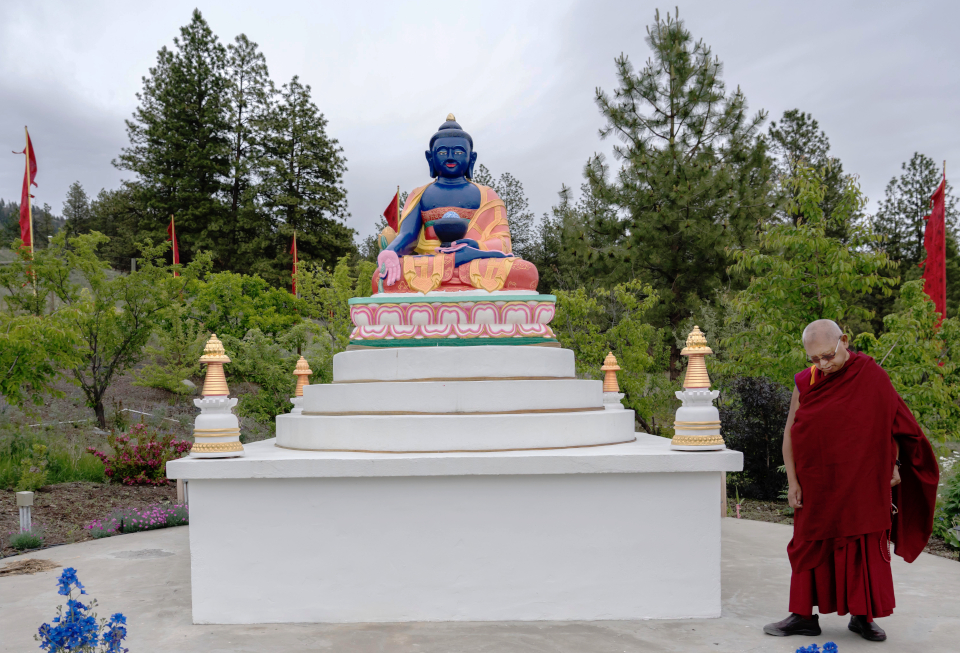
Lama Zopa Rinpoche circumambulating Medicine Buddha statue at Buddha Amitabha Pure Land, Washington, US, 2018. Photo by Ven. Lobsang Sherab.
Australia is experiencing what is becoming its worst fire season ever, affecting tens of thousands of people and countless animals.
Lama Zopa Rinpoche has given advice on several occasions on practices to do in order to dispel and protect from fire, which can be found in the PDF “Practices and Advice to Dispel Fires.” This advice includes instruction on Medicine Buddha practice, White Umbrella practice, the Heart Mantra of Arya Vairochana, Kshitigarbha practice, Chenrezig practice, and more.
You can also find additional instruction on practice to do in Rinpoche’s short advice given in 2017 on California wildfires. The Lama Yeshe Wisdom Archive also has a page for Rinpoche’s advice on fires.
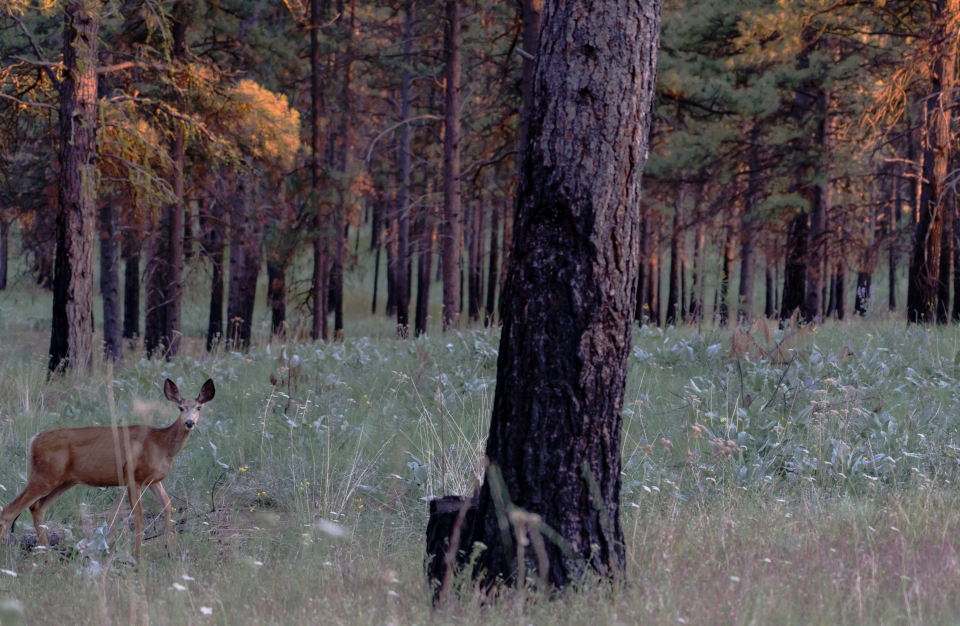
A deer friend at Amitabha Buddha Pure Land in an area affected by past wildfires, Washington, US, 2019. Photo by Ven. Lobsang Sherab.
Lama Zopa Rinpoche’s advice “Practices and Advice to Dispel Fires” can be found here:
https://fpmt.org/wp-content/uploads/teachers/zopa/advice/Fires-Practices-for-dispelling-1.pdf
Find links to recordings of Lama Zopa Rinpoche’s recent teachings from Nepal, Russia, Singapore, Latvia, France, and more:
https://fpmt.org/media/streaming/teachings-of-lama-zopa-rinpoche/
Lama Zopa Rinpoche is the spiritual director of the Foundation for the Preservation of Mahayana Tradition (FPMT), a Tibetan Buddhist organization dedicated to the transmission of the Mahayana Buddhist tradition and values worldwide through teaching, meditation and community service.
- Tagged: advice from lama zopa rinpoche, fire
24
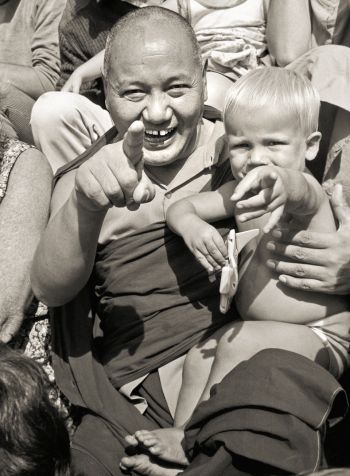
Lama Thubten Yeshe with a child at Maitreya Instituut, the Netherlands, 1981. Photo by Ina van Delden, courtesy Lama Yeshe Wisdom Archive.
When we see each other again on Christmas Eve for the celebration of Holy Jesus’ birth, let us do so in peace and with a good vibration and a happy mind. I think it would be wonderful. To attend the celebration with an angry disposition would be so sad. Come instead with a beautiful motivation and much love. Have no discrimination, but see everything as a golden flower, even your worst enemy. Then Christmas, which so often produces an agitated mind, will become so beautiful.
When you change your mental attitude, the external vision also changes. This is a true turning of the mind. There is no doubt about this. I am not special, but I have had experience of doing this, and it works. You people are so intelligent, so you can understand how the mind has this ability to change itself and its environment. There is no reason why this change cannot be for the better.
Some of you might think, “Oh, I want to have nothing to do with Jesus, nothing to do with the Bible.” This is a very angry, emotional attitude to have towards Christianity. If you really understood, you would recognize that what Jesus taught was, “Love!” It is as simple and as profound as that. If you had true love within you, I am sure you would feel much more peaceful than you do now. …
Read the entire excerpt from Silent Mind, Holy Mind and find links to the book at Lama Yeshe Wisdom Archive :
https://lamayeshe.com/article/christmas-dharma
Lama Thubten Yeshe, with Lama Zopa Rinpoche, founded the Foundation for the Preservation of Mahayana Tradition (FPMT), a Tibetan Buddhist organization dedicated to the transmission of the Mahayana Buddhist tradition and values worldwide through teaching, meditation, and community service.
16
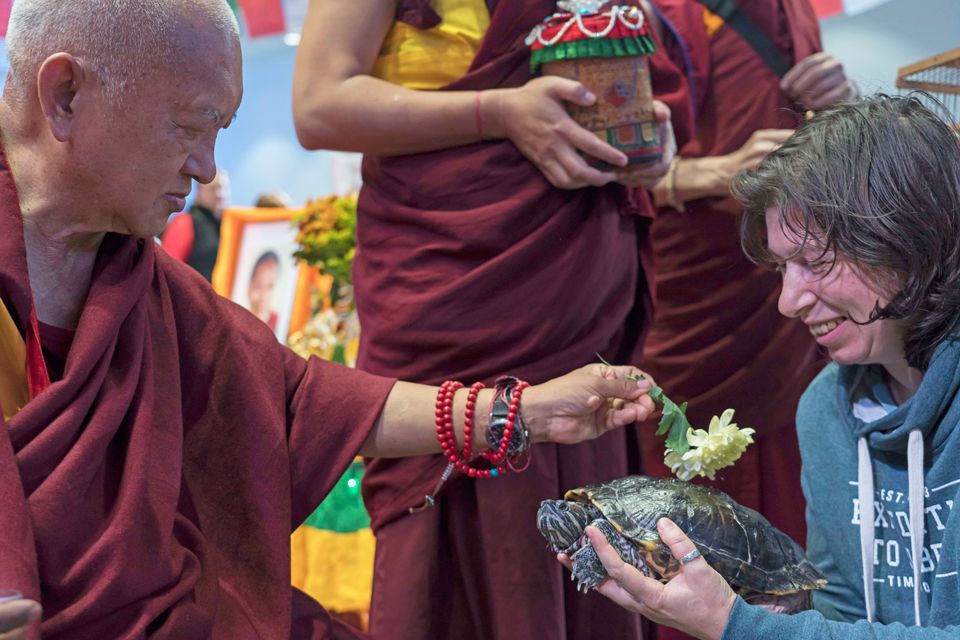
Lama Zopa Rinpoche blessing a turtle at the animal blessing organized by Ganden Tendar Ling, Moscow, Russia, September 2019. Photo by Ven. Lobsang Sherab.
Wherever Lama Zopa Rinpoche travels in the world, he is sure to do practices that benefit animals. While in Russia recently, Rinpoche attended two animal blessing events.
When Rinpoche first arrived in Moscow in late September, he attended an animal blessing day organized by students at Ganden Tendar Ling. About 700 people and pets came to the event with Rinpoche. Before Rinpoche’s arrival, information had been shared on how to benefit and provide Dharma care for animals.
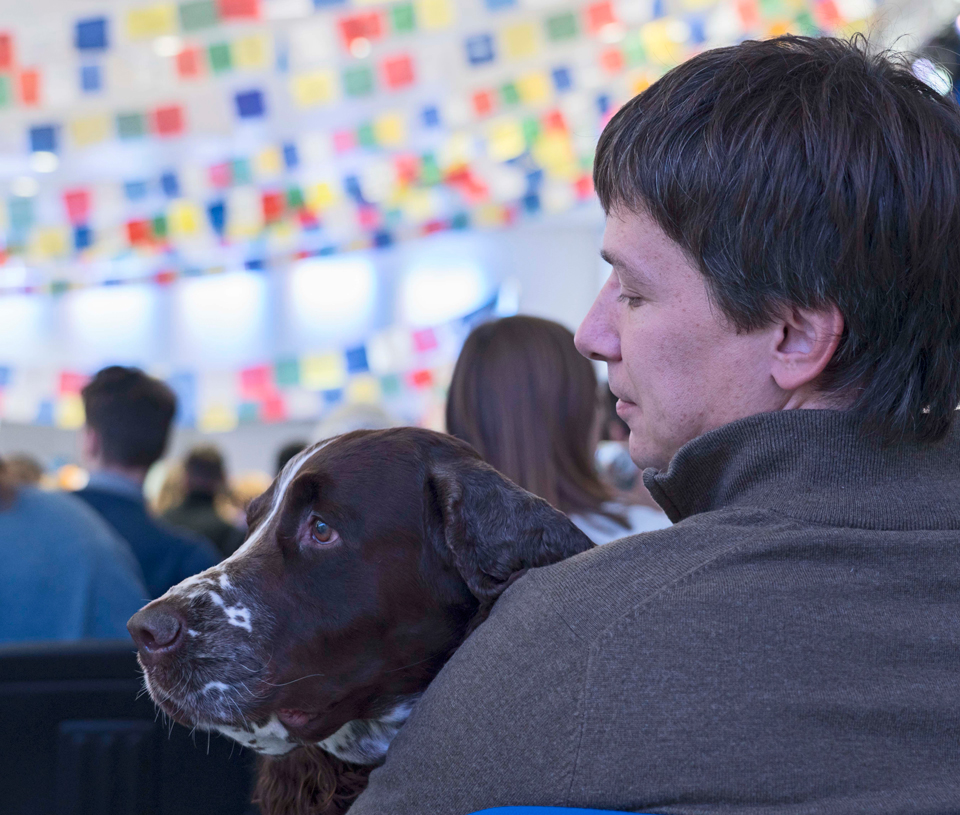
Dog at animal blessing organized by Ganden Tendar Ling, Moscow, Russia, September 2019. Photo by Ven. Lobsang Sherab.
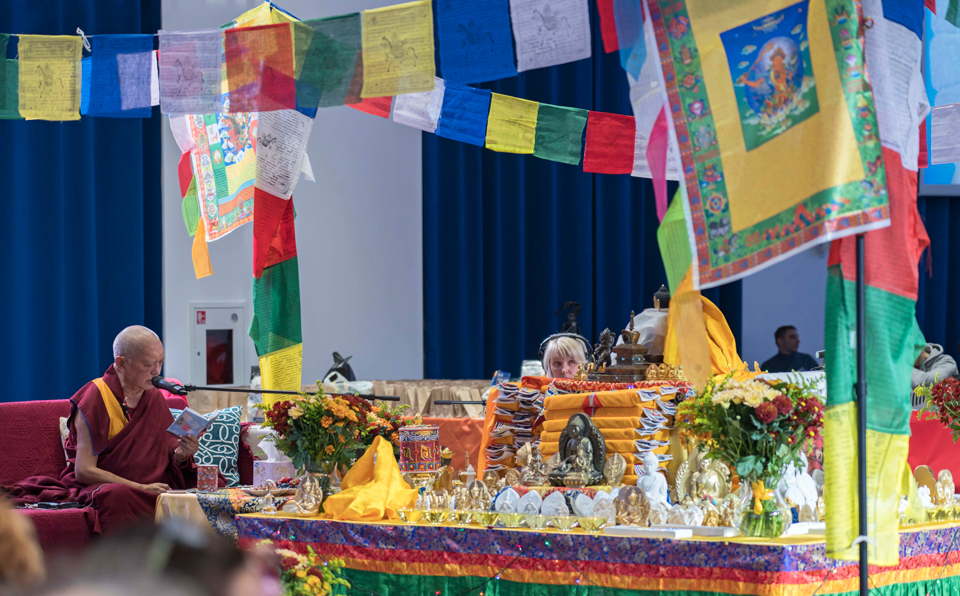
Lama Zopa Rinpoche and altar created for animal blessing organized by Ganden Tendar Ling, Moscow, Russia, September 2019. Photo by Ven. Lobsang Sherab.
At the Ganden Tendar Ling event, Rinpoche gave a Dharma talk and blessed food and water for animals. Pets and their people circumambulated around an altar that had been created for the event. Rinpoche also recited many mantras for the animals to hear.
Rinpoche did another animal blessing event while he was in Kalmykia, Russia, on October 19. In addition to many pets, Rinpoche also blessed farm animals. The next day Rinpoche traveled to the Capsian Sea and blessed the animals in the water.
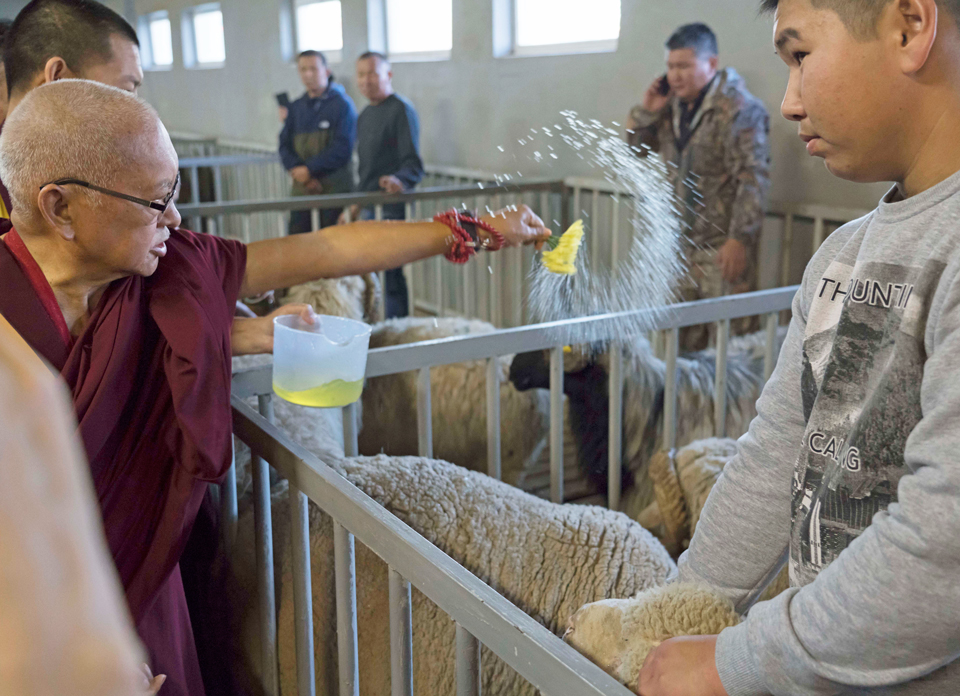
Rinpoche blessing sheep in Elista, Kalmykia, Russia, October 2019. Photo by Ven. Lobsang Sherab.

A girl and her cat at the animal blessing event with Lama Zopa Rinpoche in Elista, Kalmykia, Russia, October 2019. Photo by Ven. Lobsang Sherab.
Rinpoche has said that our animal friends are relatives from this life and past lives and that we need to care for them in the best way. Rinpoche has recommended many practices for benefiting animals. Some recommendation are as simple as playing recordings of mantras, sutras, and prayers for your pets at home.
Listen to and watch Lama Zopa Rinpoche reciting mantras to bless animals:
https://youtu.be/wTGpef4WQb4
FPMT Education Services has collected Rinpoche’s advice and practices to benefit animals. Students can learn more online:
https://fpmt.org/education/prayers-and-practice-materials/benefiting-animals-practices-and-advice/
See more photos from Lama Zopa Rinpoche’s visit to Russia:
https://fpmt.org/teachers/zopa/gallery/russia-september-october-2019/
Lama Zopa Rinpoche is the spiritual director of the Foundation for the Preservation of Mahayana Tradition (FPMT), a Tibetan Buddhist organization dedicated to the transmission of the Mahayana Buddhist tradition and values worldwide through teaching, meditation and community service.
- Home
- News/Media
- Study & Practice
- About FPMT Education Services
- Latest News
- Programs
- New to Buddhism?
- Buddhist Mind Science: Activating Your Potential
- Heart Advice for Death and Dying
- Discovering Buddhism
- Living in the Path
- Exploring Buddhism
- FPMT Basic Program
- FPMT Masters Program
- FPMT In-Depth Meditation Training
- Maitripa College
- Lotsawa Rinchen Zangpo Translator Program
- Universal Education for Compassion & Wisdom
- Online Learning Center
- Prayers & Practice Materials
- Overview of Prayers & Practices
- Full Catalogue of Prayers & Practice Materials
- Explore Popular Topics
- Benefiting Animals
- Chenrezig Resources
- Death & Dying Resources
- Lama Chopa (Guru Puja)
- Lama Zopa Rinpoche: Compendium of Precious Instructions
- Lama Zopa Rinpoche: Life Practice Advice
- Lama Zopa Rinpoche Practice Series
- Lamrim Resources
- Mantras
- Prayer Book Updates
- Purification Practices
- Sutras
- Thought Transformation (Lojong)
- Audio Materials
- Dharma Dates – Tibetan Calendar
- Translation Services
- Publishing Services
- Teachings and Advice
- Find Teachings and Advice
- Lama Zopa Rinpoche Advice Page
- Lama Zopa Rinpoche: Compendium of Precious Instructions
- Lama Zopa Rinpoche Video Teachings
- ༧སྐྱབས་རྗེ་བཟོད་པ་རིན་པོ་ཆེ་མཆོག་ནས་སྩལ་བའི་བཀའ་སློབ་བརྙན་འཕྲིན།
- Podcasts
- Lama Yeshe Wisdom Archive
- Buddhism FAQ
- Dharma for Young People
- Resources on Holy Objects
- Ways to Offer Support
- Centers
- Affiliates Area
- Teachers
- Projects
- Charitable Projects
- Make a Donation
- Applying for Grants
- News about Projects
- Other Projects within FPMT
- Support International Office
- Projects Photo Galleries
- Give Where Most Needed
- FPMT
- Shop
Translate*
*powered by Google TranslateTranslation of pages on fpmt.org is performed by Google Translate, a third party service which FPMT has no control over. The service provides automated computer translations that are only an approximation of the websites' original content. The translations should not be considered exact and only used as a rough guide.When a strong wind blows, the clouds vanish and blue sky appears. Similarly, when the powerful wisdom that understand the nature of the mind arises, the dark clouds of ego disappear.







